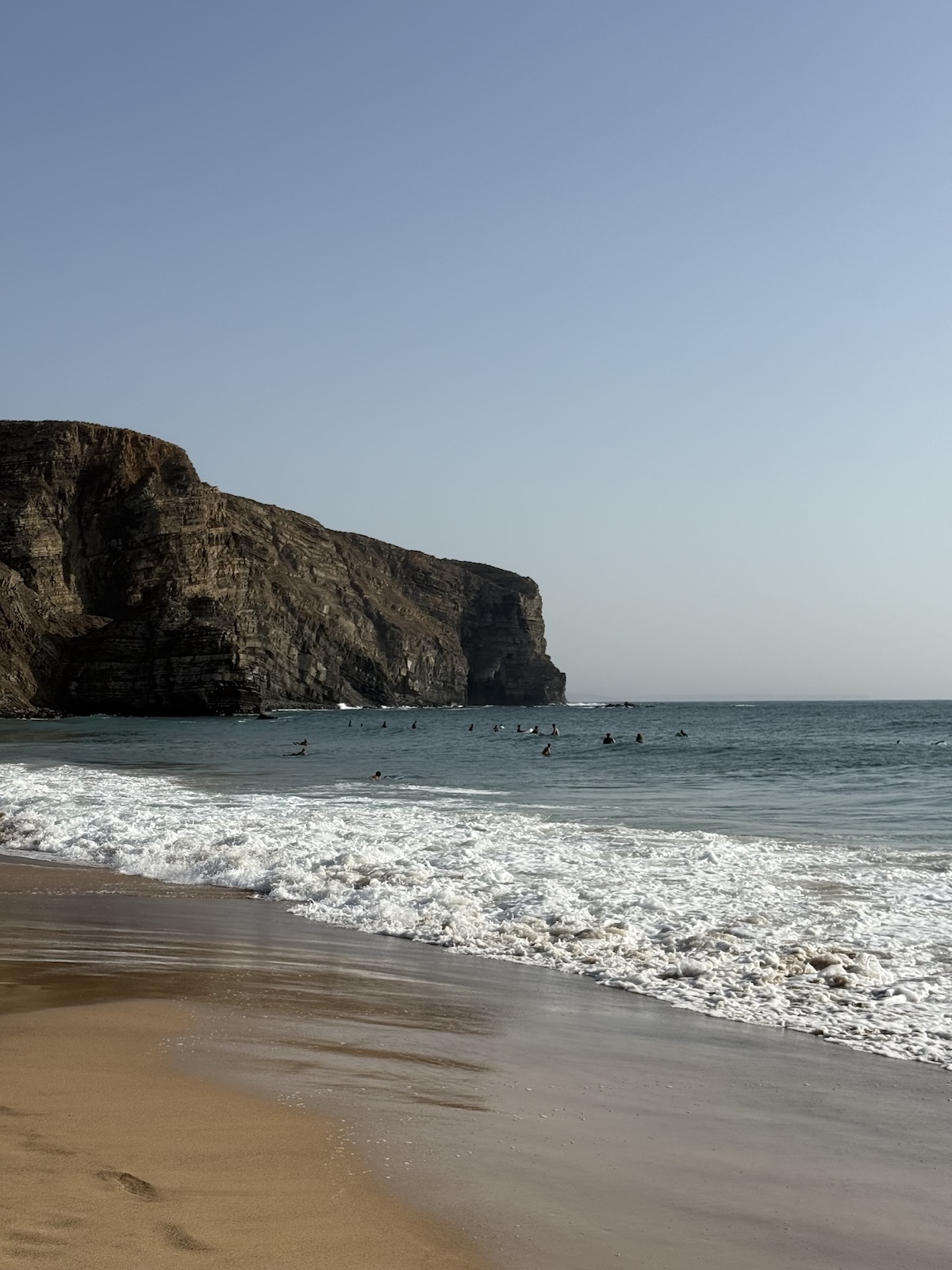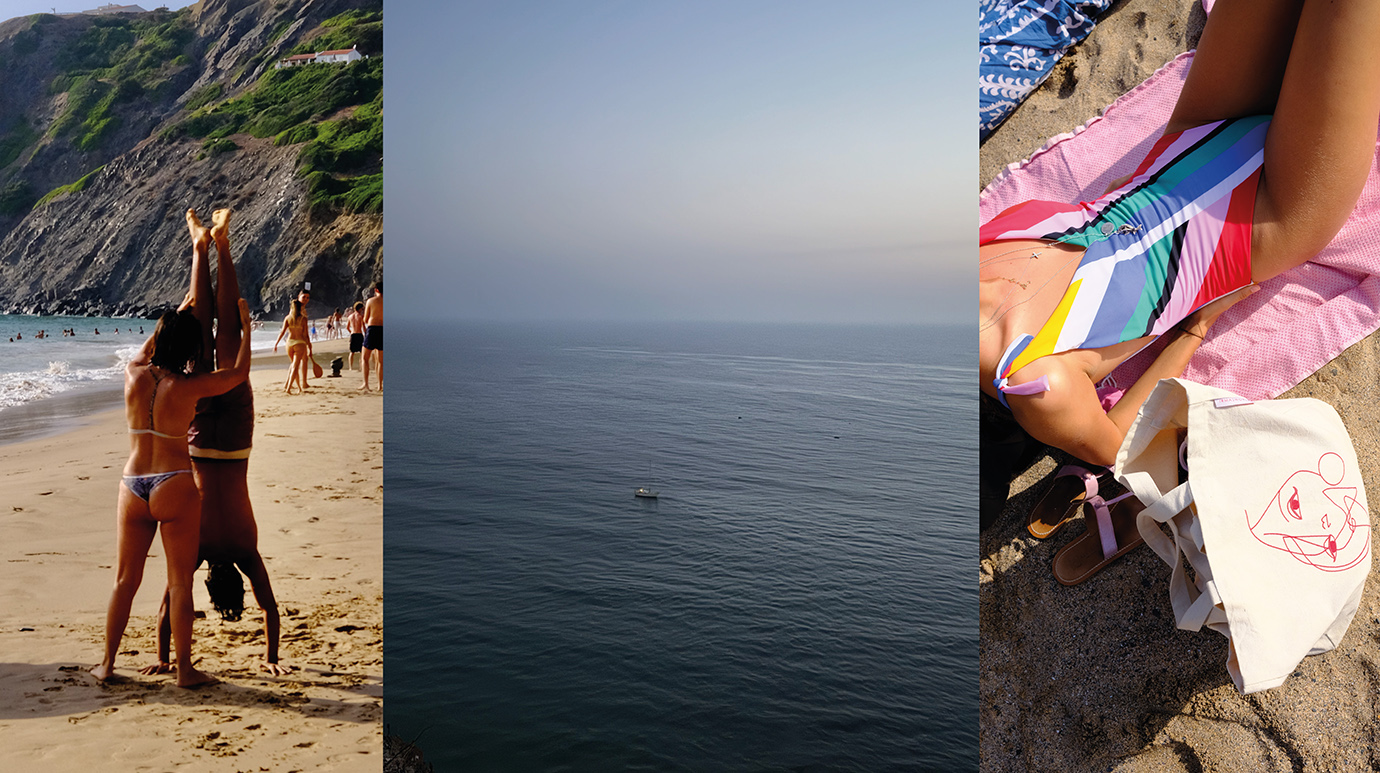On Portugal’s western coast, the Atlantic reveals its rawest face. Waves crash against cliffs, salt lingers in the air, and time slows to the rhythm of the tides. It is here, within the Costa Vicentina Natural Park, that Arrifana Beach unfolds—moody, secluded, and unforgettable. And the end of the summer ist the most magical time to visit.
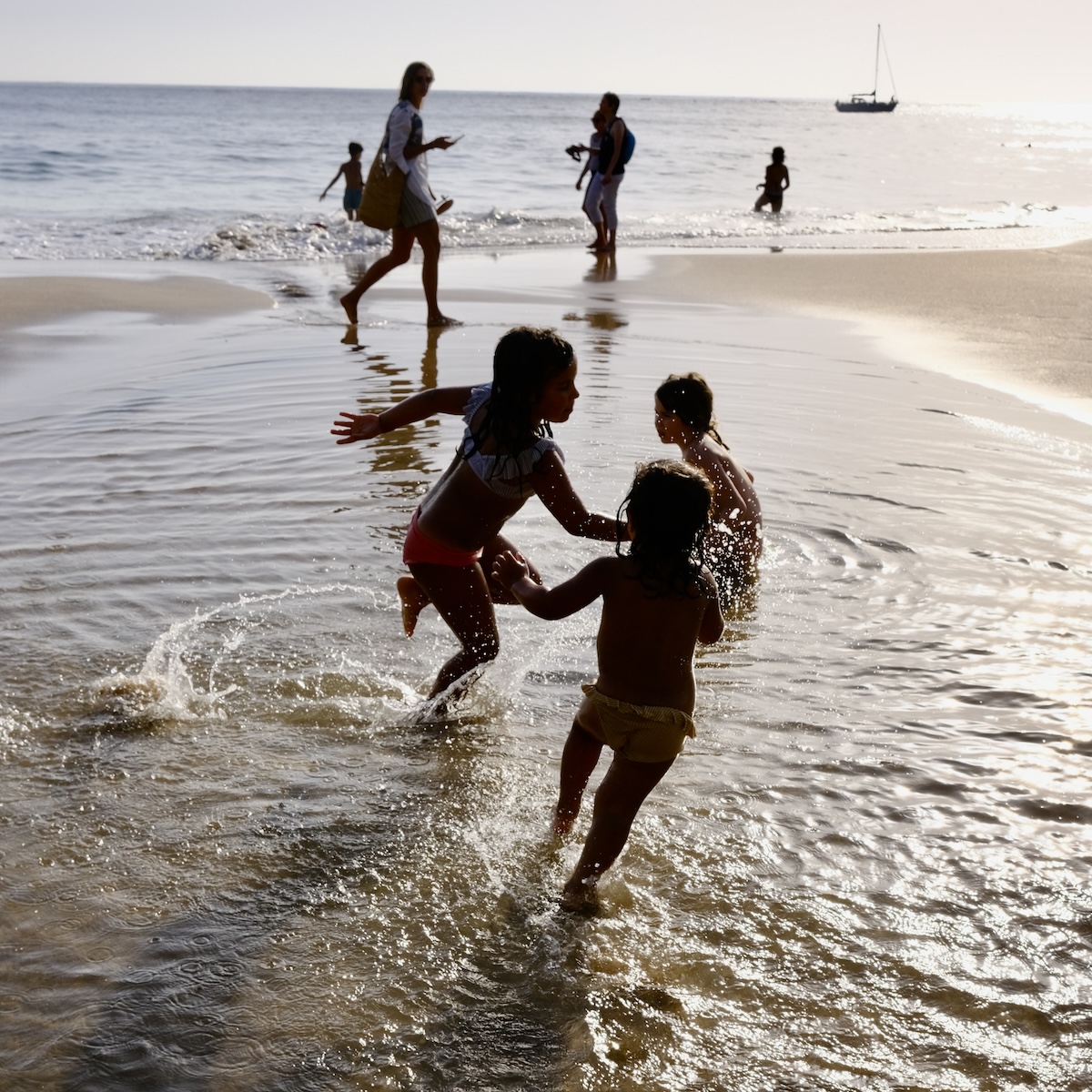
Unlike the golden resorts further south, Arrifana is elemental. From above, the view is almost cinematic: terracotta rooftops clinging to steep hillsides, cliffs tumbling into restless waters, and below, a crescent of sand glowing honey-gold as the light softens.
The beach hums with shifting rhythms. In the morning, surfers scatter across the bay, paddling towards breaks that rise and fall with hypnotic persistence. Some glide with effortless grace, others stumble through the foam, but all share in the pull of the ocean.
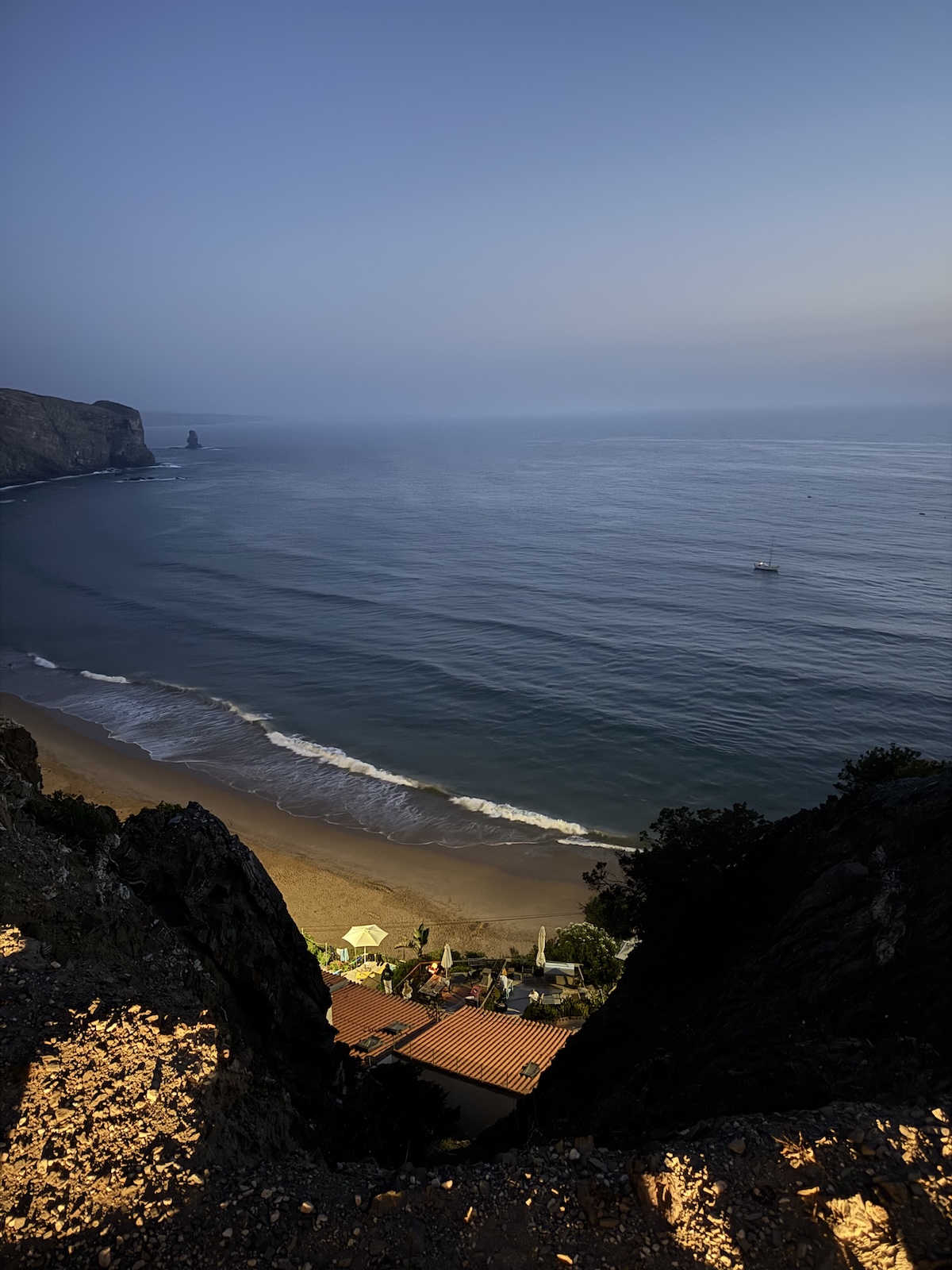
By afternoon, the energy softens. Children shriek as they dart in and out of the surf, friends laugh in handstands against the cliffs, and couples linger over picnics of figs, cheese, and chilled vinho verde. The soundtrack is part surf, part laughter, part the gentle thwack of paddle ball echoing against the cliffs.
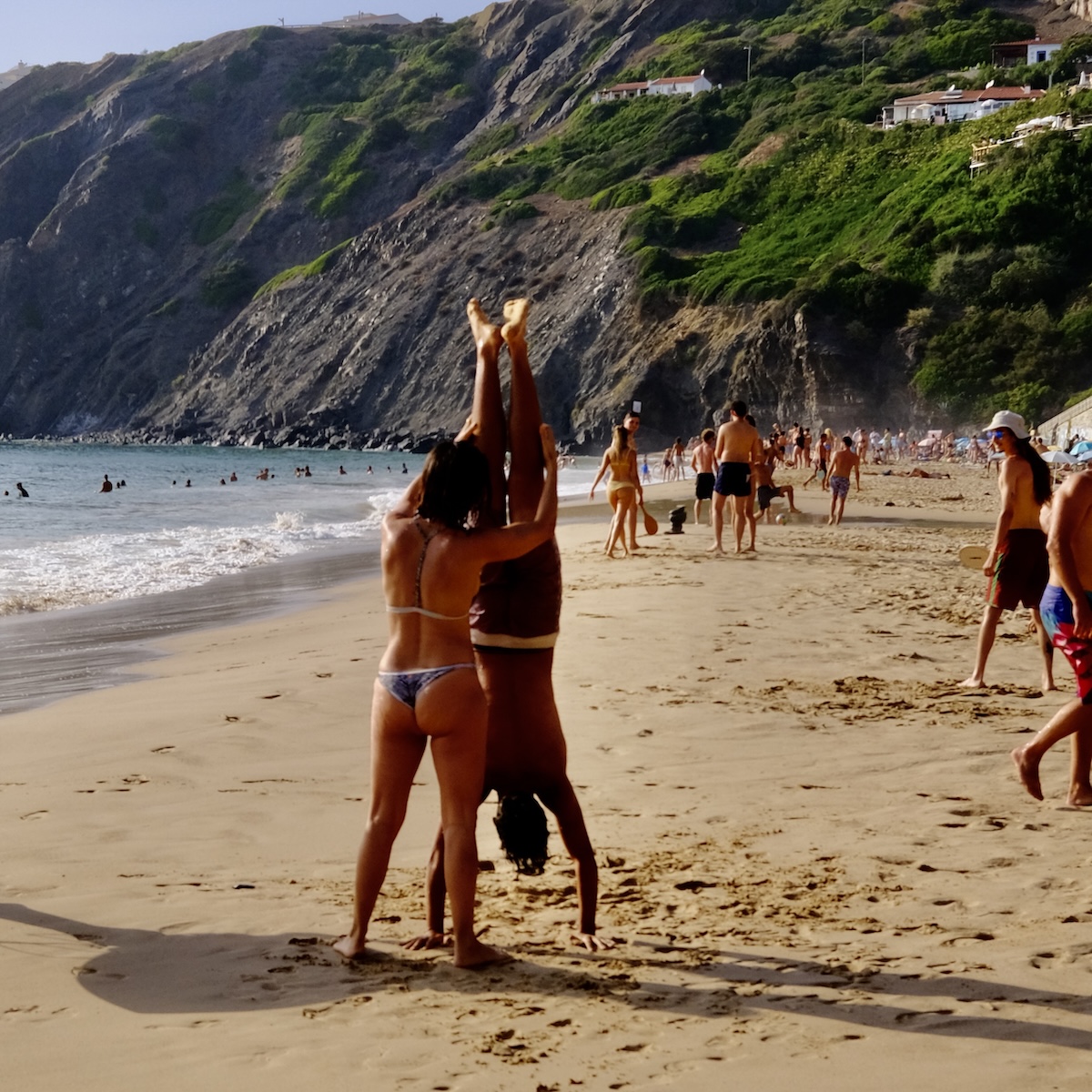
As daylight wanes, the beach falls into a painterly calm. The water mirrors the sky, shadows stretch long across the sand, and those who remain are drawn upwards, to CAL, a restaurant perched dramatically above the bay.
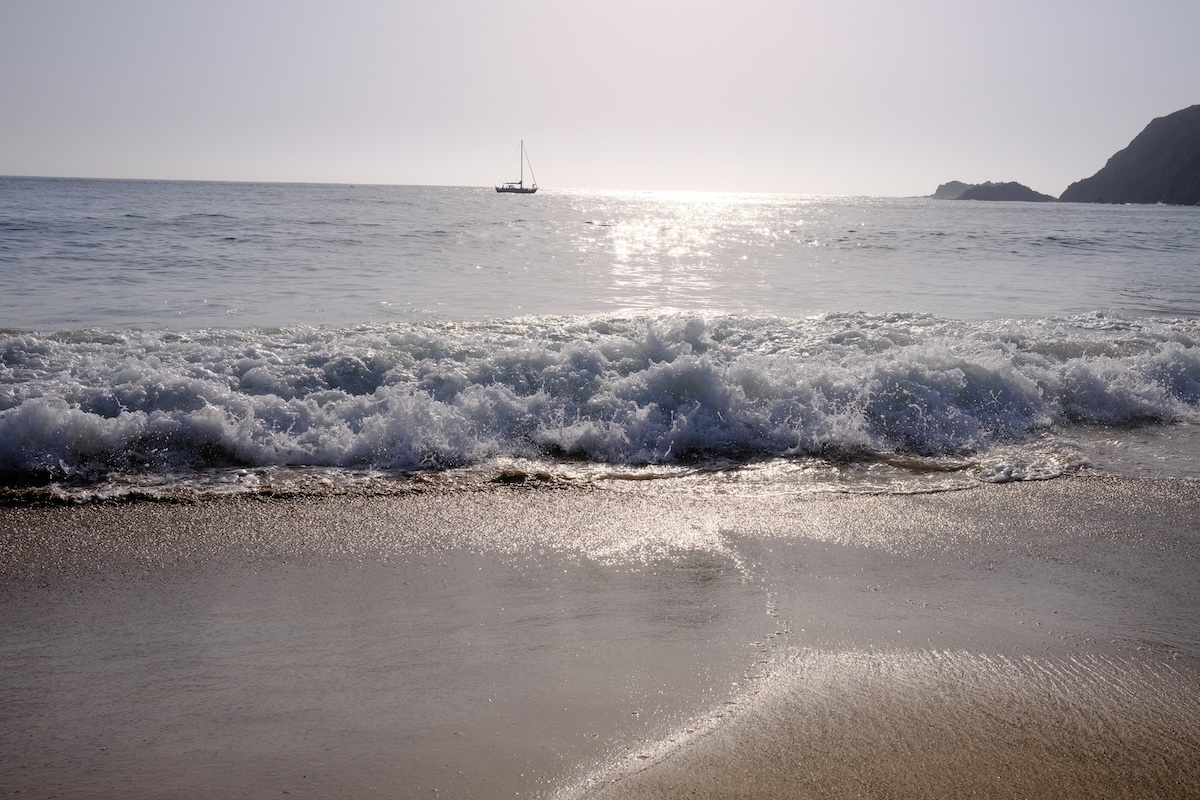
To dine here is to eat with the Atlantic at your feet. From its terrace, the horizon seems endless, broken only by sea and stone. The menu, elegant in its restraint, allows the ingredients to speak for themselves: octopus charred and tender with blistered potatoes in olive oil; clams simmered in garlic and coriander, tasting of the coast; dourada or sea bass grilled to perfection. It is food that honours its place—precise, unpretentious, quietly confident.
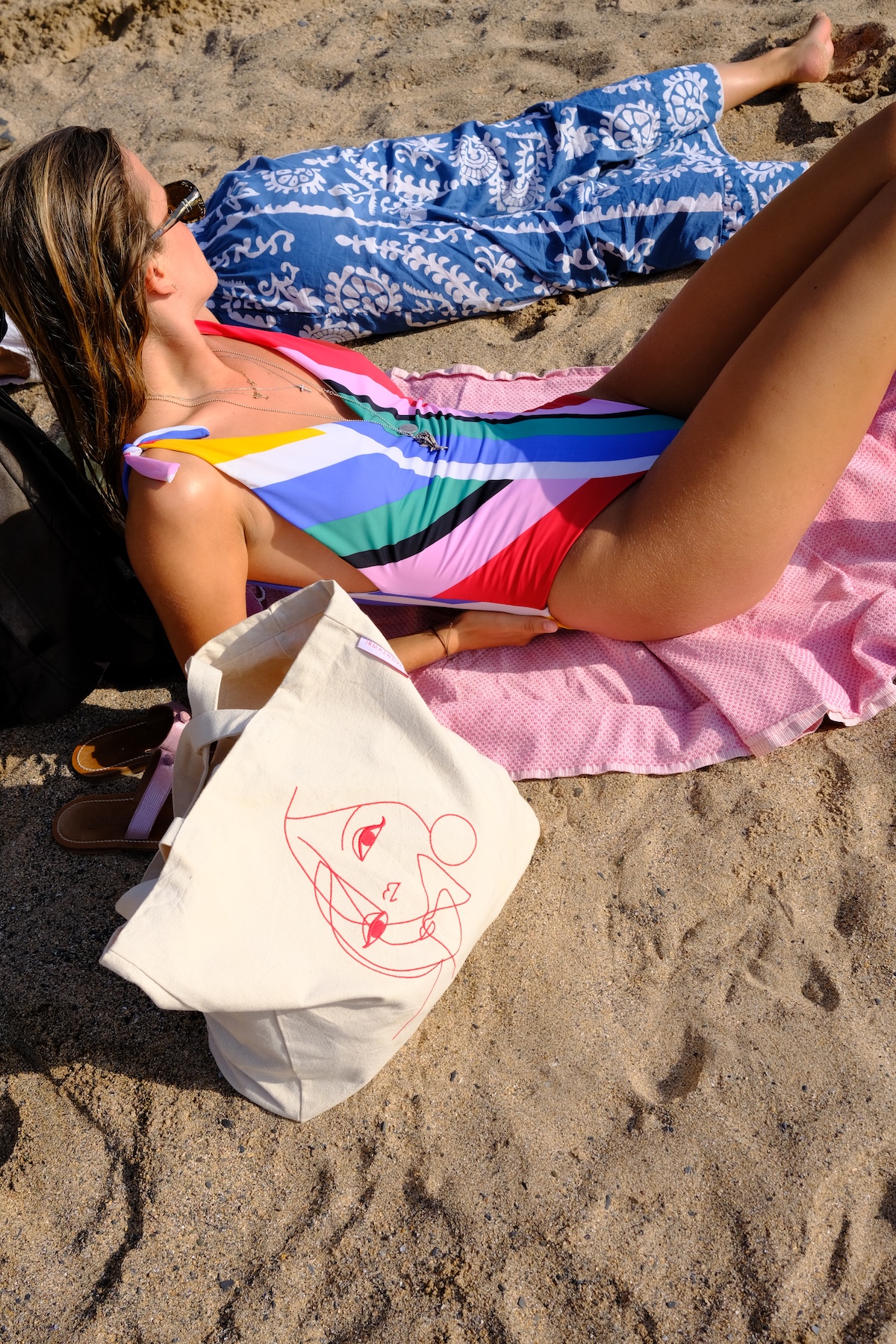
Yet Arrifana lingers not only for its flavours, but for its cadence. Life here reduces itself to essentials: mornings claimed by surfers, afternoons shared by families and wanderers, evenings reserved for those who gather at tables overlooking the sea.
Arrifana is not polished, not curated. It is cliffs that fall sheer into the ocean, children laughing in the foam, surfers carving arcs across restless waves, and friends raising glasses as the sun disappears. It strips life to its basics—salt, stone, sea—and reminds us of the joy of being fully present in their company.
